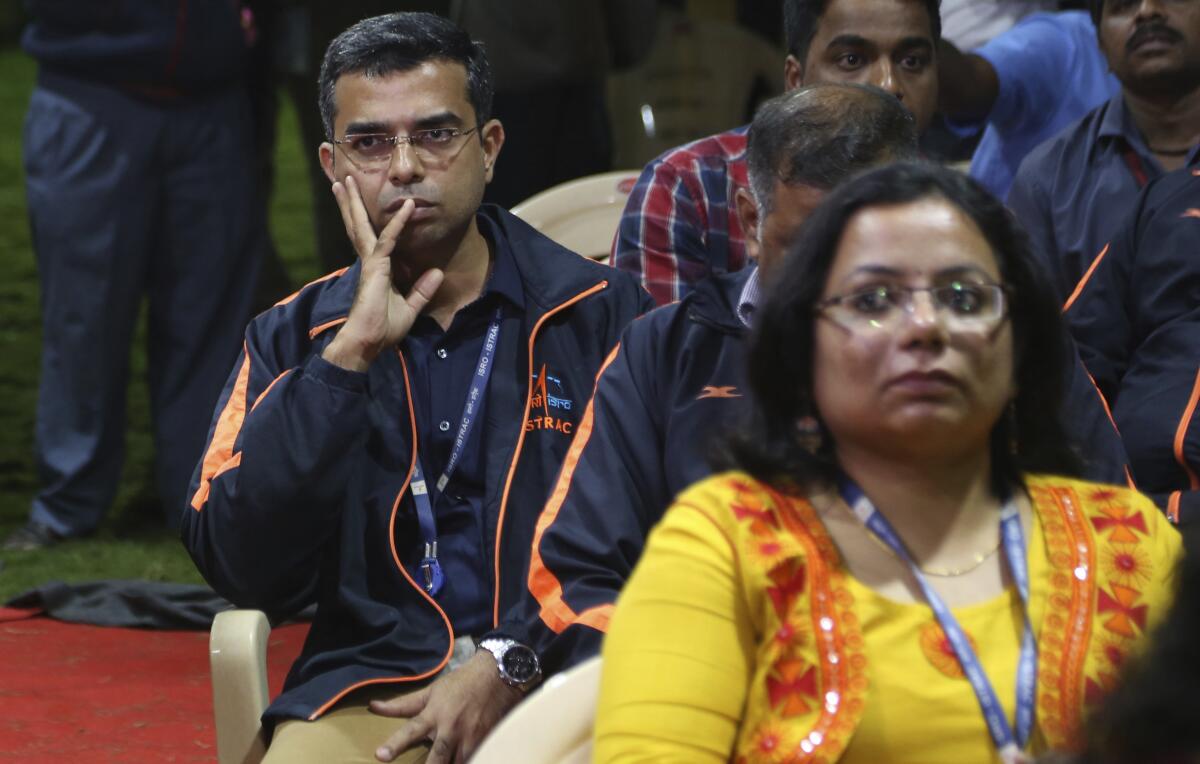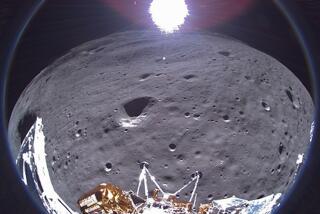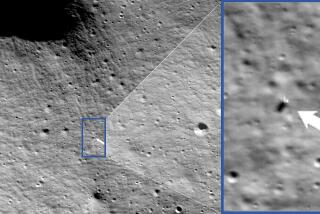India loses touch with lander on its final approach to moon

- Share via
NEW DELHI — India’s space agency said it lost touch Saturday with its Vikram lunar lander as it made its final approach to the south pole of the moon to deploy a rover to search for signs of water.
The fate of the lander — whether it crashed or landed — wasn’t immediately known.
The agency said the spacecraft’s descent was normal until 2 kilometers from the lunar surface.
“Let us hope for the best,” said Indian Prime Minister Narendra Modi, who was at Mission Control in the southern city of Bengaluru.
The space agency was analyzing data as it worked to determine what had happened.
“Communications from lander to ground station was lost,” said K Sivan, chairman of the Indian Space Research Organisation. “The data is being analysed.”
A successful landing would have made India just the fourth country to land a vessel on the lunar surface, and only the third nation to operate a robotic rover there.
The roughly $140 million mission, known as Chandrayaan-2, was intended to study permanently shadowed moon craters that are thought to contain water deposits that were confirmed by the Chandrayaan-1 mission in 2008.
Modi had traveled to the space center in Bengaluru to witness the planned landing in the early hours of Saturday and congratulate scientists who were part of the mission.
The space agency’s chairman had earlier called Chandrayaan-2 the “most complex mission ever” undertaken by the space agency.
The mission lifted off on July 22 from the Satish Dhawan space centre, in Sriharikota, an island off the coast of the southern state of Andhra Pradesh.
After its launch on July 22, Chandrayaan-2 spent several weeks making its way to the moon, ultimately entering lunar orbit on Aug 20.
On Sept. 2, Vikram separated from the mission’s orbiter, and the lander began a series of braking maneuvers to lower its orbit and ready itself for landing.
Only three nations — the United States, the former Soviet Union and China — have landed spacecraft on the moon.
Last January, China achieved the first landing on the far side of the moon. In April, an Israeli spacecraft attempting to land crashed moments before touchdown.
More to Read
Sign up for Essential California
The most important California stories and recommendations in your inbox every morning.
You may occasionally receive promotional content from the Los Angeles Times.










